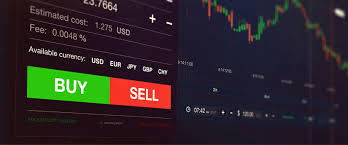Understanding Forex Trading Investment A Comprehensive Guide 1785757110

Understanding Forex Trading Investment: A Comprehensive Guide
Forex trading investment presents opportunities for individuals to engage with the foreign exchange market effectively. The forex market is the largest financial market globally, with a daily trading volume exceeding $6 trillion. Traders participate in this market by buying and selling currency pairs, hoping to profit from fluctuations in exchange rates. To get started, it is crucial to understand the basics of forex trading, strategies, risks involved, and how socioeconomic factors influence currency movements. In this article, we will explore these aspects comprehensively and also analyze how platforms like forex trading investment Best Islamic Trading cater to specific needs within this vast market.
The Basics of Forex Trading
Forex, short for foreign exchange, involves the trading of currencies in pairs, such as EUR/USD (Euro/US Dollar) or GBP/JPY (British Pound/Japanese Yen). The first currency in the pair is known as the base currency, while the second is the quote currency. Forex trading occurs in pairs because you are essentially trading one currency for another.
The exchange rate between two currencies indicates how much of the quote currency is needed to purchase one unit of the base currency. For example, if the EUR/USD exchange rate is 1.2000, it means 1 Euro can be exchanged for 1.20 US Dollars. Traders seek to capitalize on the movement of these rates by executing trades based on their market predictions.
Understanding Forex Market Participants
The forex market consists of various participants, including central banks, financial institutions, corporations, and retail traders. Each participant has different motivations and strategies for trading. For example, central banks may intervene in forex markets to stabilize or increase the value of their domestic currency, while retail traders typically engage in forex trading for profit.
In addition to these participants, forex brokers play a crucial role. They act as intermediaries that facilitate the buying and selling of currency pairs by providing trading platforms and essential resources for retail traders. It’s important to choose a reputable broker with a solid track record, transparent fees, and reliable customer support.
How to Get Started with Forex Trading
To begin forex trading, you need to take a series of steps:
- Educate Yourself: Understanding the fundamentals of forex trading is essential. There are numerous online resources, courses, and books available to help you learn.
- Select a Reliable Broker: Research and choose a forex broker that aligns with your trading goals. Look for a platform that offers a demo account, allowing you to practice trading without risking real money.
- Develop a Trading Strategy: Successful traders often have a well-defined strategy. This could involve technical analysis, fundamental analysis, or a combination of both.
- Practice with a Demo Account: Before trading with real money, practice your strategy on a demo account to gain confidence and refine your skills.
- Start Trading: Once you feel ready, you can start trading in a live account with a small amount of capital and gradually increase your exposure as you gain experience.

Forex Trading Strategies
There are numerous trading strategies that can be employed in forex trading, catering to different risk tolerances and trading styles:
- Scalping: This strategy involves making multiple trades over short periods to capture small price changes. Scalpers aim for quick profits, often holding positions for just a few seconds to minutes.
- Day Trading: Day traders buy and sell currencies within a single trading day, closing all positions before the market closes to avoid overnight risk. This strategy requires continuous monitoring of the market.
- Swing Trading: Swing traders aim to capture larger price movements over a more extended period, typically holding positions for several days or weeks. This strategy relies on technical and fundamental analysis.
- Position Trading: This longer-term strategy involves taking positions based on fundamental analysis and macroeconomic trends. Position traders may hold positions for months or even years.
The Role of Economics in Forex Markets
Forex trading is significantly influenced by various economic indicators, including interest rates, inflation, employment data, and geopolitical events. Understanding how these factors affect currency prices is crucial for effective trading.
For instance, higher interest rates can attract foreign capital, increasing the value of a currency. Conversely, poor economic data or political instability can lead to currency depreciation. Traders must stay informed about global economic events and news releases, which can cause significant volatility in the forex market.
Risk Management in Forex Trading
Effective risk management is a fundamental aspect of forex trading. Unlike traditional investments, forex trading can involve high leverage, which amplifies both potential gains and losses. Traders should implement risk management strategies to protect their capital.
Some common risk management techniques include:
- Setting Stop-Loss Orders: A stop-loss order automatically closes a trade at a predetermined price level, limiting potential losses.
- Using Take-Profit Orders: This order allows traders to secure profits once the price reaches a specific level, avoiding the temptation to hold on for potentially higher gains.
- Diversifying Currency Pairs: Trading multiple currency pairs can spread risk and reduce the impact of adverse movements in any one market.
- Only Trading with Capital You Can Afford to Lose: Ensuring that you only use disposable income for trading can help mitigate the emotional impact of losses.
Conclusion
The world of forex trading investment offers exciting opportunities for those willing to learn and adapt. By understanding the market’s dynamics, formulating effective strategies, and practicing sound risk management, traders can navigate the complexities of currency trading. As with any investment, success in forex trading requires discipline, patience, and continuous education. Whether you are a seasoned trader or just starting, staying informed about market trends and embracing innovative trading solutions can significantly enhance your trading experience.
